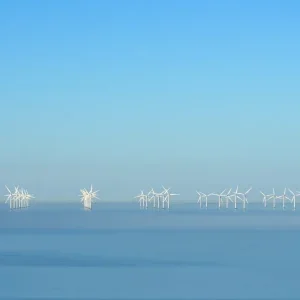The UK government has lost it appeal aginst the December High Court ruling that its cut in the recently introduced feed-in tariff for solar PV was unlawful. However it now plans to appeal to the Supreme court, despite being refused leave to do so by the Court that heard its appeal, which if it is granted will delay further the repeal of its decision over the FiT. The three Lords Justices of Appeal announced their reserved judgement on 25 January following a hearing 10 days before. The original legal challenge was made by Solarcentury, Friends of the Earth and HomeSun, and the High Court ruled on 21 December that a government proposal to cut payments for any solar scheme completed after 12 December 2011 – 11 days before an official consultation into the proposal had even closed – was unlawful.
The decision is a damaging blow to ministers and officials at the Department of Energy and Climate Change, who must now introduce the contingency date of March 3 for the start of the 21p rate for solar PV and not the original December 12 deadline.
The court judgement also means customers who have had solar panels installed and are registered ahead of the new March 3 cut-off point will now receive the original 43p rate for 25 years. Customers who register on or after March 3 will qualify for the current higher rate until April 1, when it will drop to 21p.
However within hours of the judgement, energy secretary Chris Huhne confirmed that DECC would seek permission to appeal yet again to the Supreme Court, saying “The Court of Appeal has upheld the High Court ruling on FITs albeit on different grounds. We disagree and are seeking permission to appeal to the Supreme Court. We have already put before Parliament changes to the regulations that will bring a 21p rate into effect from April for solar pv installations from 3 March to help reduce the pressure on the budget and provide as much certainty as we can for consumers and industry.“We want to maximise the number of installations that are possible within the available budget rather than use available money to pay a higher tariff to half the number of installations. Solar PV can have strong and vibrant future in UK and we want a lasting FITs scheme to support that future and jobs in the industry.”
The Supreme Court is the final court of appeal in the UK for civil cases and only hears cases on arguable points of law.
John Cridland, CBI director-general, said the further appeal was wrong, adding: “The judgement should be used to draw a line under this saga, which saw the government scoring a spectacular own goal and confidence in the renewables sector undermined.”






